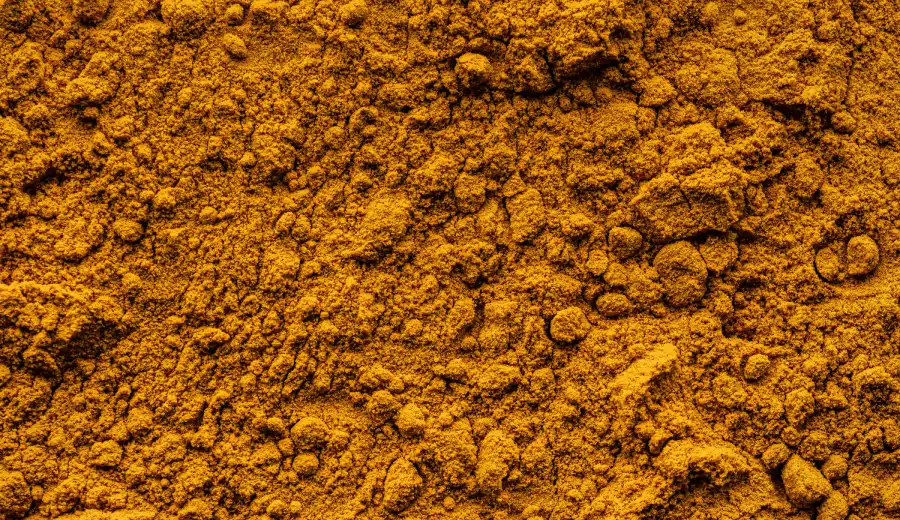
Are you looking for high quality turmeric? Nutrada matches you with reliable turmeric suppliers who offer this product in bulk and private label. On the Nutrada network you can find suppliers from the best regions with the best possible certifications such as BRC, IFS and other GFSI standards.
Turmeric (Curcuma longa) is a type of root that belongs to the ginger family. It is grown mainly for its bright yellow-orange color and a key compound called curcumin. People use turmeric in curries, spice mixes, drinks, capsules, cosmetics, and skin products. It has benefits like being an antioxidant and reducing inflammation, which makes it useful in food and health products. You can find commercial turmeric in different forms like whole pieces, sliced, powdered, or extracts. It is often used with ginger, fenugreek, and chili. At Nutrada, we put you in touch with a global network of certified turmeric suppliers who meet high quality and sustainability standards.
Curcumin is the main active ingredient in turmeric. It gives turmeric its bright yellow-orange color and provides many health benefits. Furthermore, curcumin is a type of polyphenol, known as a curcuminoid, and is often taken from turmeric for use in supplements, health foods, and cosmetics. Raw turmeric typically contains 2% to 5% curcumin by weight, though this varies based on variety and origin. High-curcumin turmeric (e.g. with 5%+) is preferred for supplements and extracts. In B2B sourcing, turmeric extract is often standardized to 95% curcumin, especially in capsules and tablets.
It is important to know that curcumin is fat-soluble and does not absorb well by itself. To improve absorption, many products now use black pepper extract (piperine).
Turmeric is traded in various formats based on processing and end-use:
Turmeric is picked once a year, usually between December and March, based on the location. It is ready to be harvested after 8 to 10 months of growth and you can tell it's time when the plant’s leaves turn yellow and start to dry.
The main countries that produce turmeric are India (the largest producer), Myanmar, Indonesia, and Nigeria. Prices depend on factors like where it comes from, the curcumin level, how it’s dried, and the necessary paperwork. Buyers who want to sell in the EU must follow Regulation (EC) No 396/2005, which covers pesticide limits. They might also need to check for PAH, heavy metals, or solvent residues, especially for powder or extract forms.
India is the largest producer of turmeric in the world, providing more than 80% of the global supply. The main producing states are Andhra Pradesh, Tamil Nadu, and Maharashtra. Indian turmeric is well-known for its high curcumin content and strong flavor, which makes it a popular choice for food and supplement makers.
Indonesia is a big producer of turmeric, especially in areas like Java and Bali. They grow it for local use and for export. Sri Lanka and Thailand also produce high-quality turmeric, which is often made into powder for sale abroad. Bangladesh is starting to grow its presence too, with small farms helping to increase supply.
Turmeric has been valued for over 4,000 years. It was first used in Ayurveda culture, rituals, and as a dye. Today, it is still being used for the same reasons.
Interest in functional foods, golden milk blends, and curcumin supplements has made turmeric important in the wellness industry. Consumers are increasingly looking for organic turmeric, sustainably grown roots, and sources that can be traced.
If you want to expand your turmeric sources, Nutrada can help. We put you in touch with reliable turmeric manufacturers that offer different types of products. You can find turmeric powder in bulk and private label. Our suppliers provide support so that you get consistent quality, follow regulations, and have shipping options around the world.
When buying turmeric in bulk, it usually comes in 5 to 25 kg food-safe bags. Bulk turmeric works well for spice companies, food manufacturers, turmeric importers, and health food brands. Buyers can enjoy contract pricing, lower costs, and consistent quality in each batch. Turmeric importers in the EU or US must ensure that the turmeric meets strict rules for pesticides, heavy metals, PAHs, and aflatoxins.
On Nutrada can find turmeric suppliers who offer private label turmeric in several forms, like jars, capsules, sachets, or turmeric latte blends, depending on your market needs. Nutrada's suppliers can handle minimum batch orders of 500 to 1,000 units for each product. They may also offer services like labeling compliance, allergen declarations, vegan/GMO-free status, and identifying the country of origin.
Organic turmeric meets standards like EU Organic, USDA Organic, and India Organic. It is checked by independent organizations such as ECOCERT, Control Union, or OneCert. The needed papers include organic certificates and residue tests.
If you want to buy turmeric powder, whole roots, slices, or extract, Nutrada provides you with a wide range of turmeric vendors from top regions like India, Indonesia, Sri Lanka, Thailand, and Bangladesh. Our platform allows buyers to compare suppliers based on where they come from, their certifications, product details, and shipping ability.